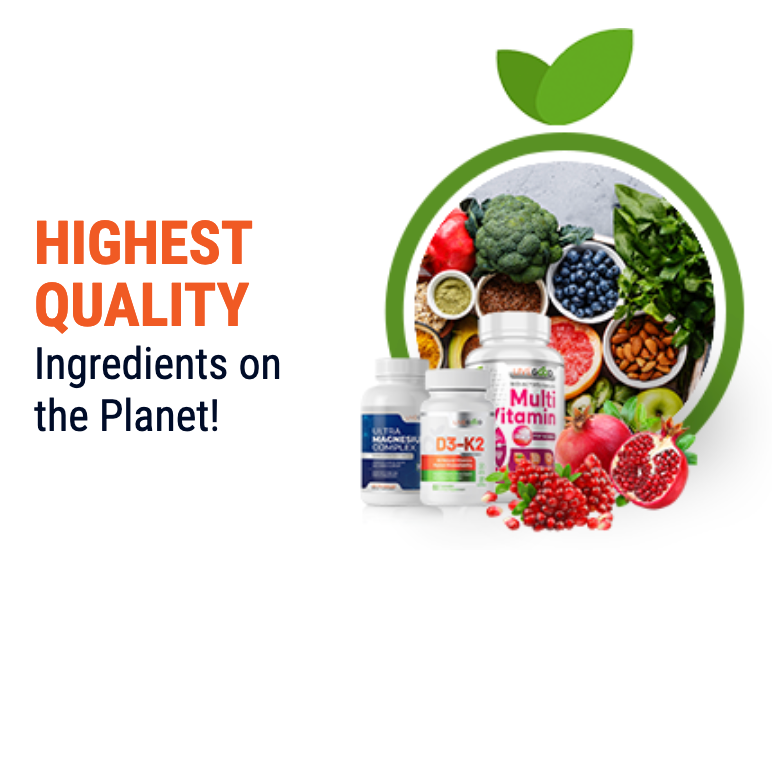
Are you getting enough essential vitamins and minerals in your diet?
Recent studies reveal that this is a prevalent concern among older adults in the United States. A majority of individuals aged 55 and above report using dietary supplements, and this inclination is well-founded. Insufficient levels of essential vitamins and minerals in our bodies can lead to physical symptoms like fatigue and muscle discomfort. Furthermore, deficiencies in nutrients have been associated with chronic conditions such as diabetes and osteoporosis.
Distinct deficiencies can give rise to distinct symptoms. To provide insight into some of the early signs, we had a conversation with Sameera Talegawkar, an associate professor specializing in exercise and nutrition sciences at George Washington University in Washington, D.C.
Detecting a deficiency requires understanding that the most accurate method is to arrange a medical appointment, which might involve undergoing blood tests to gauge your vitamin and mineral levels.
It’s crucial to recognize that identifying deficiencies during older age can be more intricate due to the presence of chronic ailments and the utilization of medications. Your healthcare provider must carefully evaluate these factors and their potential influence on nutrient absorption. As Talegawkar puts it, “Every nutrient plays a distinct role in the body. Hence, a deficiency will inevitably lead to consequences. Therefore, a physician must evaluate the medications and health conditions present before arriving at a diagnosis. Certain medications could result in side effects that might subsequently trigger a nutrient deficiency.”
- Fatigue, Bone Pain, Muscle Weakness
Feeling consistently fatigued? Experiencing discomfort in your bones? Noticing a sense of muscle weakness? These sensations might serve as indicators that your body is running low on vitamin D.
Vitamin D holds pivotal importance not only for maintaining robust bone health but also for supporting the proper functioning of your nervous, musculoskeletal, and immune systems.
Notably, older adults face an elevated risk of developing a deficiency in vitamin D. Similarly, individuals with darker skin tones and those residing in areas with limited sunlight exposure are also prone to being deficient.
Additional symptoms often linked to insufficient vitamin D levels encompass muscle spasms, cramps, tingling sensations, spasms affecting the vocal cords, and even changes in one’s personality.
Sources of Vitamin D: To replenish vitamin D levels, consider incorporating foods such as fatty fish (like salmon and mackerel), fish liver oils, fortified dairy products, orange juice, soy milk, fortified breakfast cereals, eggs from vitamin D-fed hens, and mushrooms exposed to either sunlight or UV light.
- Fatigue, Weakness, Pale Skin
If persistent fatigue and a prevailing sense of weakness are accompanied by the observation that your skin has taken on a pallid hue, this might signal a deficiency in vitamin B12—a critical element for nerve and blood health.
Additionally, insufficiency in vitamin B12 may manifest as weight loss, reduced appetite, numbness and tingling in the extremities, cognitive confusion, and impaired memory.
Due to our bodies’ inability to naturally synthesize B12, we must obtain it from specific foods and beverages. However, the aging process can impede the absorption of vitamin B12 from dietary sources. Furthermore, the use of stomach acid blockers can further hinder the absorption process.
Sources of Vitamin B12: To ensure adequate intake of vitamin B12, consider incorporating animal products like red meat, poultry, shellfish, dairy, and eggs into your diet. For those adhering to a vegetarian or vegan lifestyle, it’s prudent to explore supplements or fortified foods to ensure optimal intake, as advised by Talegawkar.
- Elevated Blood Pressure, Kidney Stones
Are you grappling with high blood pressure or kidney stones? Perhaps you’re noticing subtler indications like changes in bone turnover and urinary calcium excretion, characterized by symptoms such as lower abdominal pain, presence of blood in urine, frequent urination, painful urination, and urine that appears cloudy or has an unpleasant odor. These signs could be pointing to a potential deficiency in potassium.
Potassium, an essential electrolyte, assumes a crucial role in maintaining the proper functionality of muscles, nerves, and the heart. It’s also indispensable for facilitating healthy digestion and upholding robust bone health. Severe depletion of potassium levels, referred to as hypokalemia, can pose a serious threat, potentially leading to paralysis. Milder instances of hypokalemia may induce fatigue, muscle weakness, and constipation.
For older adults, it’s important to recognize that a potassium deficiency can be instigated by the use of diuretic medications or excessive reliance on laxatives, among other medications, as highlighted by Talegawkar.
Sources of Potassium: Optimal sources of potassium can be found in fruits and vegetables, followed by nuts, seeds, and dairy products.
- Breathlessness, Fatigue, Cold Extremities
Are you experiencing persistent tiredness, a rapid heartbeat, palpitations, difficulty concentrating, and challenges with temperature regulation? These manifestations often signify anemia—a condition characterized by insufficient iron levels in the blood. Other potential indicators include pale skin, a tender or swollen tongue, and nails exhibiting a spoon-like curvature.
When your body lacks the necessary iron to produce hemoglobin, a crucial component of red blood cells responsible for transporting oxygen throughout the body, it can lead to overwhelming sensations of fatigue and weakness.
Although iron deficiency is most commonly associated with young children, women under 50, and pregnant women, older adults can also face diminished iron levels if their dietary intake lacks sufficient iron-rich foods.
Sources of Iron: To bolster iron intake, consider incorporating animal-based options like meat, poultry, and seafood, as well as plant-based choices such as leafy greens, whole grains, legumes, nuts, and seeds.
- Muscle Cramps, Dry Skin, Fragile Nails
Experiencing muscle cramps, parched skin, and nails prone to brittleness? These could be indications of insufficient calcium levels in your body. Ignoring this matter can potentially lead to neurological complications, with severe cases possibly resulting in seizures, irregular heart rhythms, and even congestive heart failure. This is because the presence of calcium in your bloodstream plays a pivotal role in nerve function, muscle coordination, blood clotting, and the well-being of your heart.
A shortage of calcium might contribute to a condition known as hypocalcemia. Typically arising due to abnormal parathyroid hormone (PTH) levels or inadequate vitamin D, this condition might also prompt your body to draw calcium from your bones, potentially weakening them and increasing the risk of osteoporosis.
Sources of Calcium: To boost your calcium intake, consider incorporating foods like dairy products, calcium-fortified orange juice, leafy greens, black beans, almonds, sesame seeds, and chia seeds into your diet.
Preventing and Addressing Nutritional Deficiencies in Seniors
Adopting a nourishing diet rich in essential nutrients serves as the foremost strategy for averting and managing nutritional deficiencies. The Dietary Guidelines for Americans recommend the following:
- Personalize Your Food Choices: Tailor your meals to align with your preferences, cultural background, and financial considerations.
- Prioritize Nutrient-Rich Foods: Opt for a diverse range of foods from various categories to ensure you acquire the necessary nutrients while staying within your calorie goals.
- Limit Unhealthy Foods: Reduce consumption of items high in added sugars, saturated fats, sodium, and alcohol.
While maintaining a wholesome diet is crucial, some older adults might require supplements to meet their specific nutrient needs. Prior to introducing any supplements, it’s essential to consult with a physician or registered dietitian who can assess your medical history, ongoing medications, and potential interactions. Common supplements for older adults often encompass calcium, vitamin D, and vitamin B12, as suggested by Talegawkar.
In more severe instances, older individuals dealing with nutritional deficiencies might necessitate non-food-based interventions under the guidance of a healthcare professional or registered dietitian. These interventions could involve therapeutic nutrition products, supplements, micronutrient injections or infusions, or even tube or intravenous feeding.
It’s never too late to prioritize your nutritional well-being. Proactively managing your dietary choices and seeking professional medical guidance to ensure you’re fulfilling your nutritional requirements can aid in diminishing the risk of nutritional deficits and sustaining your health and vitality as you age, as affirmed by Talegawkar.







